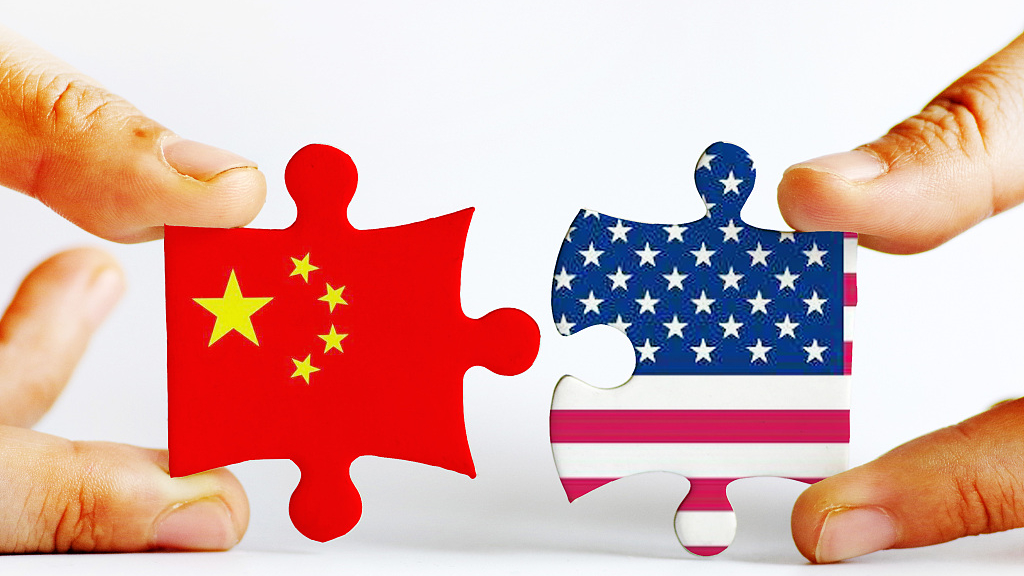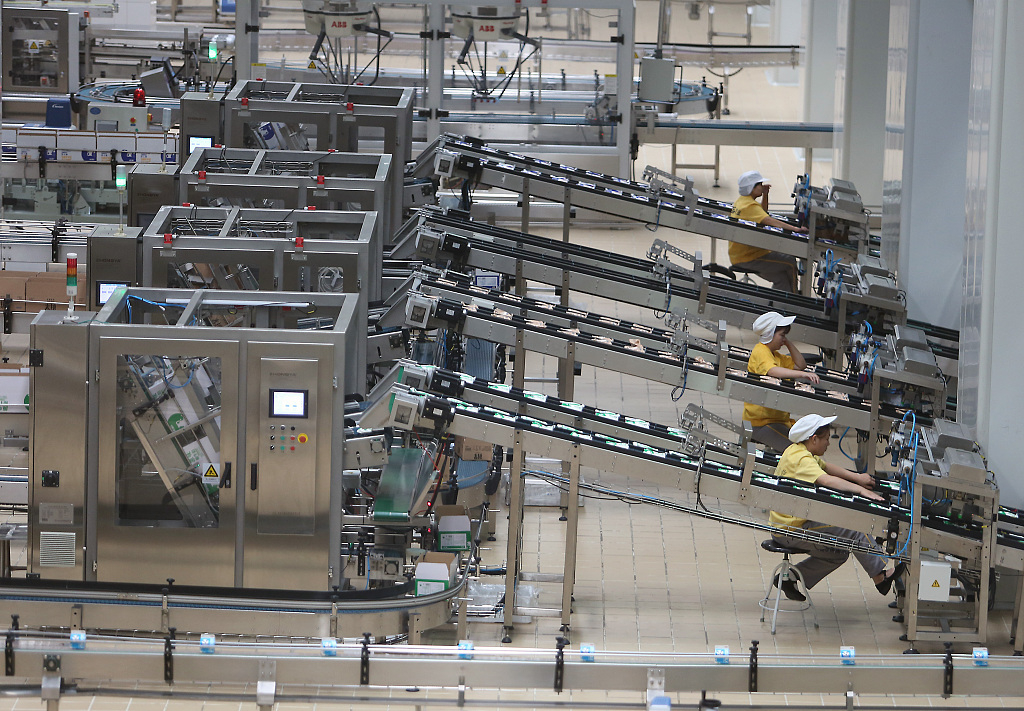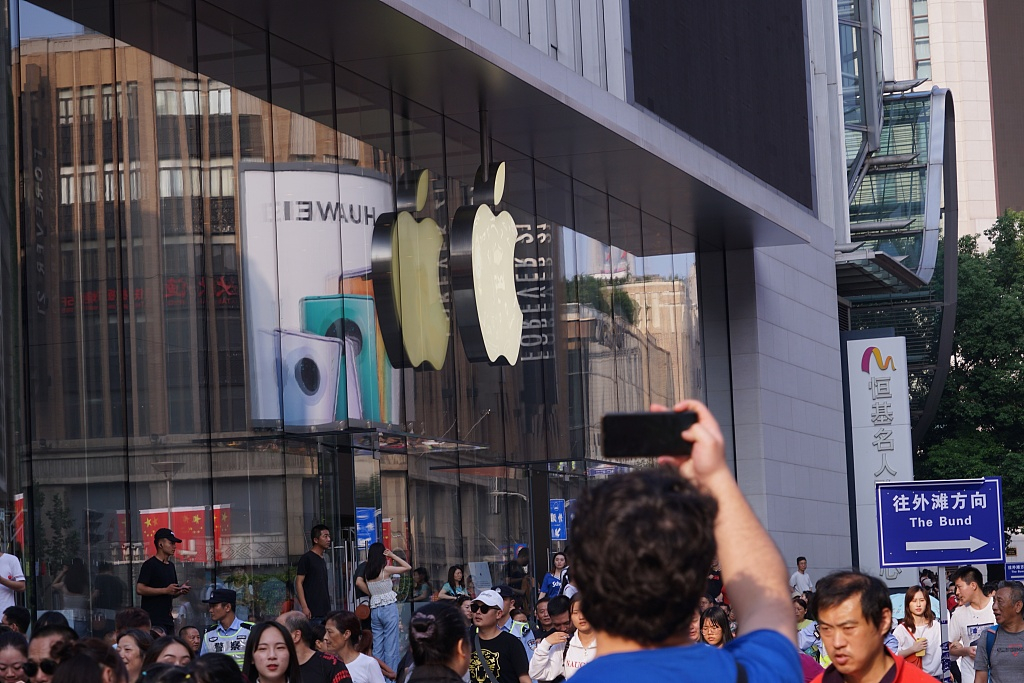
Editor's note: Keith Lamb is a University of Oxford graduate with a MSc degree in Contemporary Chinese Studies. His primary research interests are international relations of China and China's "Socialism with Chinese Characteristics." The article reflects the author's opinions, and not necessarily the views of CGTN.
On November 4, on the sidelines of the 14th East Asia Summit in Thailand, Chinese Premier Li Keqiang met with U.S. National Security Adviser Robert O'Brien and Prime Minister of New Zealand Jacinda Arden. At the meeting, Li called for respecting each other's core interests and major concerns based on equality and mutual respect while expanding 'win-win' cooperation.
It's worth noting that 'win-win' isn't just a catchphrase, it is a mode of relationship that has been demonstrated in China's conduct with the world.
This year marks the 40th anniversary of the establishment of China-U.S. diplomatic ties. Their mutual engagement, based on win-win, has been hugely advantageous to both countries
Upon opening up, China provided its vast reserves of labor at the service of foreign multinationals. This allowed stagnating Western capital to make profits hand over fist. China was chosen as a place to do business not out of charity, but because China provided a better environment than other developing countries. Chinese workers proved to be highly literate and disciplined. China's infrastructure, even forty years ago, was excellent vis-à-vis China's level of development. These factors combined to make China the chosen place to be for global manufacturing.
China also expected to gain something from its opening up. Just like the Tiger economies of East Asia, China learned advanced production techniques. This allowed China to grow its technological base steadily. By becoming the manufacturing base of the world, China, with its weak agricultural base but a giant population, steadily eased itself out of poverty.

China's massive labor supply has been the engine of the country's economic development. /VCG Photo
China's massive labor supply has been the engine of the country's economic development. /VCG Photo
Despite these successes, the U.S. media and politicians in both parties have demonized China. The advantages of the China-U.S. relationship are played down while the myth that China steals jobs and technology is perpetuated far and wide. Without the U.S. side fully understanding the huge boon China has played for its businesses, any future dialogue with China only takes place based on an attitude of disrespect and inequality.
When China entered into diplomatic and trading relations with the U.S., China was by far the weaker and poorer side. Nevertheless, China's weakness didn't mean it couldn't enter into a win-win relationship with the stronger U.S. partner. The world has changed today. China now has many successes that the U.S. can learn from.
For example, the U.S. seeks to dismantle China's state-owned enterprises (SOEs) so that Chinese economy could more closely resemble its own. The U.S. believes that China's SOEs have an unfair advantage. However, China's planned market economy, which the SOEs are an integral part of, form the underlying foundation for China's developmental success. They allow the state to redistribute wealth based on the needs of society.
Contrast this with U.S. corporations in China. The manufacturing of an iPhone is an often-cited example of the inequality of the Chinese-U.S. relationship. When an iPhone is manufactured in China, very little of its profits stay in China. The majority is creamed off by Apple.

Although many say that China is taking advantage of Apple's iPhone production process, the majority of the profits are actually retained by Apple instead of Chinese people. /VCG Photo
Although many say that China is taking advantage of Apple's iPhone production process, the majority of the profits are actually retained by Apple instead of Chinese people. /VCG Photo
Unfortunately, the immense profits reaped by U.S. corporations doing business in China are not redistributed for the needs of U.S. society. This is hardly China's fault. As such, the U.S. media parroting that China is to blame for the ills of U.S. society is hollow.
In the banking sector, the U.S. wishes to open China's banks that are mainly state-controlled. However, the Asian financial crisis of 1997 and the global economic meltdown of 2008 were both products of private Western banking interests bringing disaster to the masses. China was able to avoid the worst of these catastrophes because of its mode of banking system.
The U.S. and Western capital have contributed to China's prosperity, while China has also contributed to the growth of both U.S and Western capital. However, this success came about because both sides recognized that, despite different economic and political systems, through mutual respect, win-win outcomes could be achieved. This understanding and respect of each other's systems is fundamental for future successful China-U.S. engagement.
Today, the China-U.S. relationship can reach new heights of win-win cooperation. The U.S. can learn from China's system, which is on the cusp of eradicating extreme poverty. China's labor force is increasingly advancing its skills with higher education becoming the norm. As China turns from a mass producer to a mass innovator, its technological contributions can be shared with all of humanity, including the U.S.
(If you want to contribute and have specific expertise, please contact us at opinions@cgtn.com.)